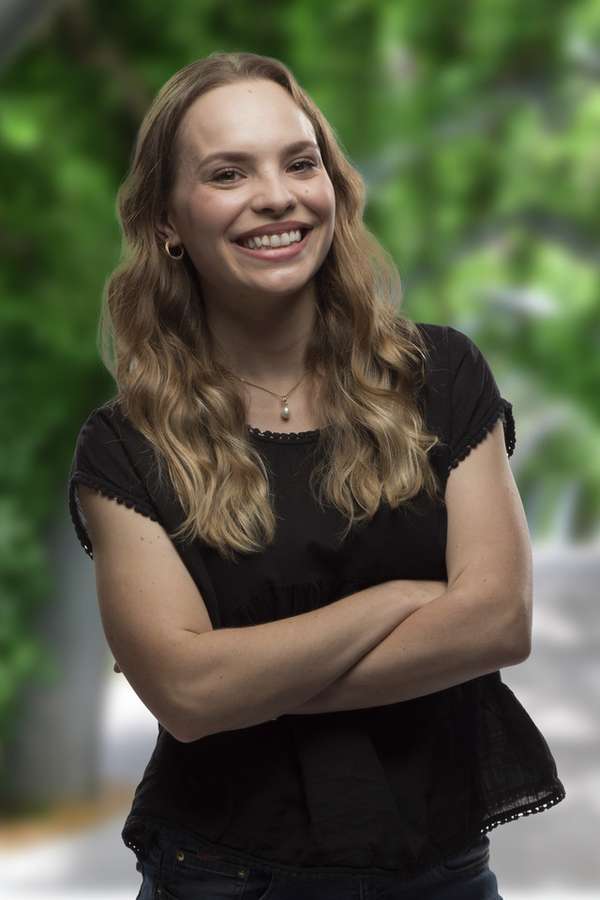Bachelor of Education (Primary)

Overview
Influence the next generation and guide young people to learn and grow. The Bachelor of Education (Primary) provides you with the qualifications to teach in primary schools from foundation year to Year 6.
This course is an initial teacher education course and qualifies you for professional registration which is administered in Queensland by the Queensland College of Teachers. You will demonstrate evidence of meeting the Australian Professional Standards for Teachers (Graduate career stage) throughout the course of study.
On successful completion of the course, you will be eligible for employment in primary school contexts throughout Australia.
In addition to building the professional knowledge and skills required to teach effectively, the course is designed to foster dispositions for engaging in and contributing to the teaching profession through a commitment to ongoing professional learning.
This course incorporates supervised assessable teaching practice in schools with professional practice blocks included in each year of the course. Meaning you'll have numerous opportunities to apply theoretical knowledge in practical ways to prepare you for employment.
In-demand specialisations
The Bachelor of Education (Primary) also includes specialisations in English, Science and Mathematics providing you with 'in demand' knowledge and skills. If you're located within the Rockhampton Diocese, you can also undertake a specialisation in Catholic Education allowing you to be accredited to teach in a Catholic School.
Study Experience
- Authentic Learning Experiences
- Online or On Campus
- Seamless Pathways
- Work-integrated learning
- Fast-track Option
 “
“My Dad was everyone's favourite teacher and I feel like I want to be that person. It's really inspiring getting to see how you impact just one child. I can't wait to teach here and overseas.
Sarah Reiman
Bachelor of Education (Primary)
Career Opportunities
As a graduate of the Bachelor of Education (Primary) you will be qualified to teach in primary schools from foundation year to Year 6. Like most professions, teaching has specific workforce demands and sometimes oversupply. Before undertaking a course of study, you should check with major employers regarding potential employment prospects.
LANTITE Test
To be eligible to graduate and therefore acquire provisional teacher registration, you will be required to undertake and pass the National Literacy and Numeracy Test for Initial Teacher Education. This test, referred to as LANTITE, is administered nationally by the Australian Council of Education Research (ACER).
Structure & Availability
The course structure and available locations can change depending on when you want to study. You can choose the intake that best suits you in the drop-down menu below.
Available Locations
Your Course
You must complete 33 units (192 credits):
- 1The core structure (33 units)
Unit Details
The units you'll study are listed below. Click on a unit to learn more.
What You'll Study
In this course, you will study a total of 33 core units.
The unit list below outlines the 33 units you will study in this degree.
Catholic Education Strand
A Catholic Education Strand is also available if you are seeking an option to gain accreditation to teach in a Catholic school. If you choose the Catholic Education strand, the following four units will replace four of the 33 units you would study in the standard strand. You can view more details about these units in the list below.
- Specialisation and Teaching in the Catholic School Community (EDFE13034)
- Teaching Religious Education in a Catholic School (EDCU13021)
- Contemporary Meanings and Religious Texts (RELG13001)
- Professional Practice 3 - The Catholic School Placement (EDFE12044)
Refer to the course planner to view when you will study each unit in both the standard and Catholic Education strands.
Course Planner
To help you plan your studies and see which unit comes first, if one unit should be completed before another and when you will study each unit, check out our course planners.
Additional Information
Professional Practice - Queensland College of Teachers
Core
Graduates are eligible to apply for provisional registration as a teacher upon completion of the course.
Professional Practice 2 (Primary) – Classroom Management - EDFE12042
Supervised Placement as per EDFE12042 Unit Profile
Professional Practice 1 - Introduction to Teaching - EDFE11038
Supervised Placement as per EDFE11038 Unit Profile
Professional Practice 3 (Primary/ECE) - Managing the Differentiated Classroom - EDFE13032
Supervised Placement as per EDFE13032 Unit Profile NB: If students are in the Catholic Education Strand, they complete this unit instead - EDFE12044
Professional Practice 4 - Engaged Teaching and Learning - EDFE14021
Supervised Placement as per EDFE14021 Unit Profile
Duration of Professional Practice units
Benefit from supervised placements to graduate classroom ready. Check below for more detail on the length of each placement block.
| UNIT NAME |
CODE |
DURATION |
| Early Childhood Education and Care Placement | EDFE40002 | Optional 120 hours of placement to satisfy placement requirements for the Diploma of Early Childhood Education and Care. |
| Professional Practice 1 - Introduction to Teaching | EDFE11038 | 15-day block of practical experience under the guidance of a supervising teacher in a school setting. |
| Professional Practice 2 (Primary) - Classroom Management | EDFE12042 | 20-day block placement in a school. |
| Professional Practice 3 (Primary/ECE) - Managing the Differentiated Classroom | EDFE13032 | 20-day block placement in a school. Students taking the Catholic Education Strand will complete EDFE12044 instead, and complete a 20-day block placement. |
| Professional Practice 4 - Engaged Teaching and Learning | EDFE14021 | 25-day block placement in a classroom environment plus five one-day visits to prepare you for the continuous five-week teaching block. |
If you have completed prior study relevant to units within this course, you may be eligible for credit for your past studies. Learn more about credit and recognition of prior learning.
Requirements
To Be Eligible
For your application to be considered, you must meet the following entry requirements.
Student and Course Profiles
View the student and course profiles for this course and learn about CQU's Undergraduate Profile for Term 1, 2024 via our Institute Profile.
During Your Study
While not needed to apply, you'll need to meet the following requirements throughout your studies.
Fees & Scholarships
Indicative First-Year Fee
The Indicative First-Year Fee is the approximate cost of enrolling in this course for one full-time academic year (eight units over two terms) for a Commonwealth Supported Place (CSP) and should be used as a guide only. Your actual fees may vary, depending on the units you select to study and your study load. Check the cost-per-unit spreadsheet available on our fees webpage for the approved unit fees. Fees are reviewed each year and are subject to change. Understanding your fees.
Commonwealth Supported Places
This course has Commonwealth Supported Places (CSPs) available, and as a domestic student, you'll be offered a CSP, provided you meet CSP eligibility requirements. CSPs are subsidised by the Australian Government, meaning you are only required to pay the student contribution rather than full tuition fees.
HECS-HELP Loan
You may be eligible for a HECS-HELP government loan if you are offered a CSP. HECS-HELP is an Australian Government loan scheme that assists you in paying your student contributions. Provided you meet the HECS-HELP eligibility criteria, you may use HECS-HELP to defer part or all of your student contribution fees.
Part of your course costs will include Student Services and Amenities Fees (SSAF). SSAF is charged in addition to your student contribution or tuition fees and is used to help enhance your study experience. There may also be other costs as part of your studies, such as textbooks, technology expenses, travel expenses, professional certifications, uniforms, or vaccinations. Explore other study costs.
We believe a quality education can be for everyone – regardless of background, location, or life circumstances. That's why we offer a variety of scholarships and bursaries that can give you a helping hand with a range of expenses and enhance your employability.
How to Apply
How to Apply
Check what you need to do to apply to study this course.
Your Application Options
Follow These Steps
Extra Admission Information
Prior to applying, take a look at important application dates and learn about our admission considerations, such as information for domestic students with overseas qualifications, indigenous support, and elite athlete, coach and performer support. You should also check out the adjustment schemes that might be available to you and how to access them. You can also explore our offer information to learn more about what happens after you've submitted an application and how to respond to an offer to study with CQU.
Start Your Application
When applying through a tertiary admissions centre (TAC) you can use the relevant TAC code below to search for a course or add it to your application preferences.
